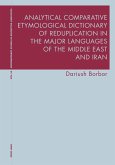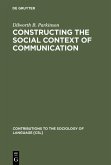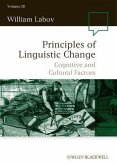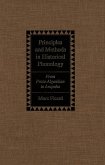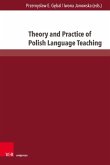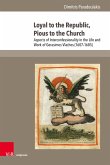The main theme of the volume is the exploration and identification of the fundamental principles involved in constructing and understanding the microstructures found within etymological references. The authors offer an in-depth examination of designing etymological dictionaries, focusing on the principles behind constructing their microstructures. It begins by exploring the evolution of lexicographic sources and their role in societal knowledge organization. The work then delves into the methodology of building dictionary entries, discussing the integration of traditional and cognitivesynergetic principles to better capture the linguistic nuances of words. Through comprehensive analysis and detailed examples, this volume provides a profound understanding of how etymological information is systematically organized and presented.
Dieser Download kann aus rechtlichen Gründen nur mit Rechnungsadresse in A, B, BG, CY, CZ, D, DK, EW, E, FIN, F, GR, H, IRL, I, LT, L, LR, M, NL, PL, P, R, S, SLO, SK ausgeliefert werden.



